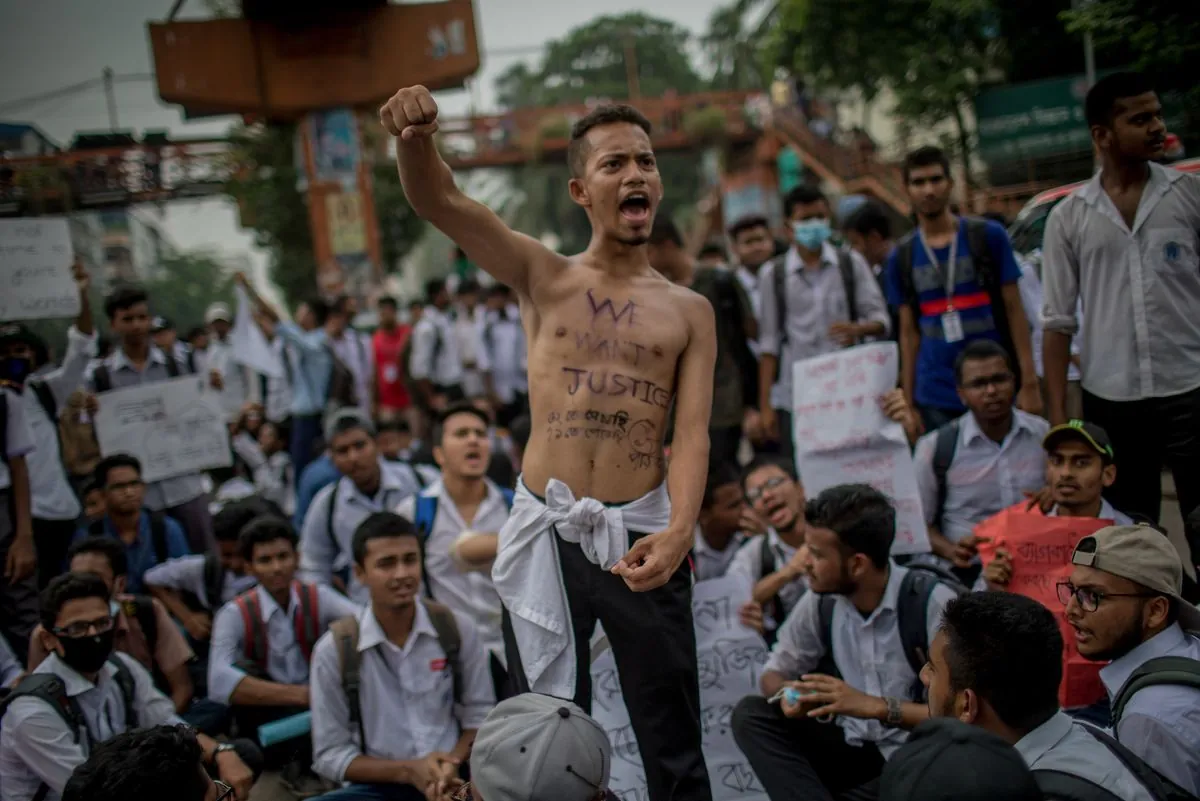In a remarkable turn of events, Bangladesh has witnessed a significant political upheaval, with student-led protests resulting in the ousting of Prime Minister Sheikh Hasina. This development has ignited both hope and apprehension across the nation, as citizens contemplate the potential for substantial political and social reforms.
The protests, which began over a week ago, culminated in Hasina's departure from power after a 15-year tenure. Subsequently, students surrounded the high court, demanding the chief justice's resignation due to concerns about potential interference with the newly established temporary government.
This transitional administration, led by Nobel laureate Muhammad Yunus, faces the daunting task of restoring order and overseeing future elections. However, the path forward is fraught with challenges, including questions of legitimacy and resistance from established political entities.
Mohammad Tanzimuddin Khan, a Dhaka University professor who mentored protest leaders, expressed cautious optimism: "It's not very easy to hope for something better. We had this same experience in the past and we failed every time."
Bangladesh's political history since its 1971 independence from Pakistan has been marked by instability, including military coups and alternating rule by two dominant parties: the Awami League and the Bangladesh Nationalist Party (BNP). This latest power shift has been particularly violent, with hundreds of casualties, primarily students.
The protesters are advocating for substantial changes to the political system, including:
- A new bicameral parliament
- Term limits for lawmakers
- Reformed judicial nomination processes
However, traditional political parties argue that the transitional government lacks the mandate for such sweeping reforms. Sajeeb Wazed, Hasina's son, stated, "Anytime change is forced outside of the constitutional laws, it is not sustainable."
"This government is here for a specific task: the transition from an autocracy to a democracy. Whether we like it or not, we cannot get away from politics."
The situation is further complicated by economic challenges. Bangladesh's garment industry, second only to China's globally, has been hit hard by the COVID-19 pandemic. The country struggles to generate employment for the 2 million people entering the workforce annually, while also grappling with increased food and fuel import costs due to global events like Russia's invasion of Ukraine.
Amidst the uncertainty, students have taken on roles typically filled by law enforcement, directing traffic and monitoring market prices to prevent exploitation during the turmoil. This grassroots involvement reflects the deep-seated desire for change among Bangladesh's youth.
As the nation navigates this critical juncture, the coming months will be crucial in determining whether the student-led movement can translate its momentum into lasting reforms, or if the established political order will reassert its influence.
